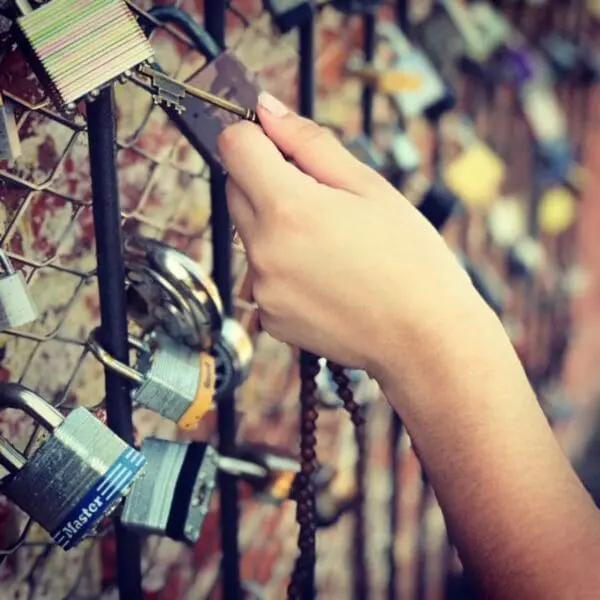Dentistry: Ways to Stop Clenching Your Jaw for Better Health and a Better Look

All of us can get stuck in a habit. A habit is something we often repeat, without thinking, and that we can’t seem to break. Most habits can be good, like brushing your teeth twice a day, but others, like biting your nails, are not so good. Biting your nails is a habit that can lead to serious problems, such as infection, because you may not realize that you are doing it. But you can take precautions and stop biting your nails. One way you can stop biting your nails is by finding a way to stop clenching your jaw.
A big part of dentistry these days is how we look, which includes our jaw and all the teeth inside it. Many people will, for instance, consider veneers to cover up teeth that are not adding to their look and perhaps affecting their mental health because of how they think about themselves. Veneers, such as those available from https://dentfixturkey.com/veneers-in-turkey/, will cover up teeth to the world that are stained, chipped, or cracked. We can take care of all of this when we have veneers fitted by cosmetic dentistry providers.
Returning to jaw clenching, everyone clenches their jaw from time to time during the day, but it can become a habit. If you let it go on for long enough, it can become a serious health concern. The health risk of clenching your jaw is that it can cause acute damage, including arthritis and jaw pain.
If you clench your teeth when you are anxious, angry, nervous, stressed, or worried, you are damaging your jaw. It can also cause your teeth to press against each other in your mouth and impact other underlying structures, like the jawbone. Clenching your teeth can also cause muscle tension resulting in headaches, sore muscles, and pain. So, what can you do to relieve your jaw tension?
Here are three ways to stop clenching your jaw:
- Relax your facial muscles and jaw in the form of exercise
Your face will be in a constant state of tension unless you take steps to relax your facial muscles and jaw. These are muscles you use all the time yet are easy to forget about. The truth is you don’t need to flex your jaw to talk, but it’s not always easy to remember to keep it relaxed.
- Massage the jaw
Our jaws are meant to move when eating and speaking, not clenching. Each time you clench your jaw, it activates the muscles in your jaw, which can lead to headaches and tension. Instead of clenching your jaw, try massaging your jaw. Rub your jaw vigorously, for around five to ten seconds, and release it. This will help keep the muscles relaxed.
- Eat softer foods
The question of whether you should eat softer foods has been long debated by dentists, (like this dentist in oakbrook terrace), nutritionists, and dental hygienists. But you don’t need a degree in dentistry to figure out the answer. There’s a reason your jaw hurts when you’re eating something hard. The muscles in your mouth get a workout when you chew, and when you chew something hard, your jaw rocks back and forth to break up the food. This stress on the mouth and jaw can cause pain, and if you continue to eat hard foods, you could develop TMJ (temporomandibular joint) syndrome.
There are multiple things to worry about when it comes to your mouth and teeth. When you yawn, it can strain your jaw and neck muscles. When you eat and chew, your jaw, lips, and teeth can clench together to trap food, which can damage your teeth and jaw. Also, when you talk, you may inadvertently clench your jaw so hard that it becomes hard to open your mouth and speak – or you may clench so much that it becomes hard to do anything at all.
We all do it, even though we know it’s not good for us. We clench our jaws when we are stressed and/or when we are expecting an unpleasant situation. We clench our jaws when we are nervous, bored, angry, or sad. We clench our jaws when we have an impending deadline. We have been told this is a natural reflex, but are we doing ourselves any favors?
The jaw is an extremely important part of the upper face, not just for the functions it performs but for the beauty it adds. When you clench your jaw, you are creating tissue damage to the muscles of your face, and the condition known as TMJ is one of the most common causes of facial pain. Clench-related headaches are the second most common type of headache, just after migraines.
Here at Wellness, we like to say, “No pain, no gain.” If you have been told that your teeth are going to hurt, you are most likely clenching your jaw. This is a natural reflex that keeps your teeth from slipping out. However, it can also be an early warning sign of TMJ issues. They can be caused by jaw misalignment, stress, poor posture, or poor jaw muscle strength.
Our mouth does come with its problems, but whether these are how we hold it or view it, this can be taken care of by the tips above and allowing your dentist to help you.









